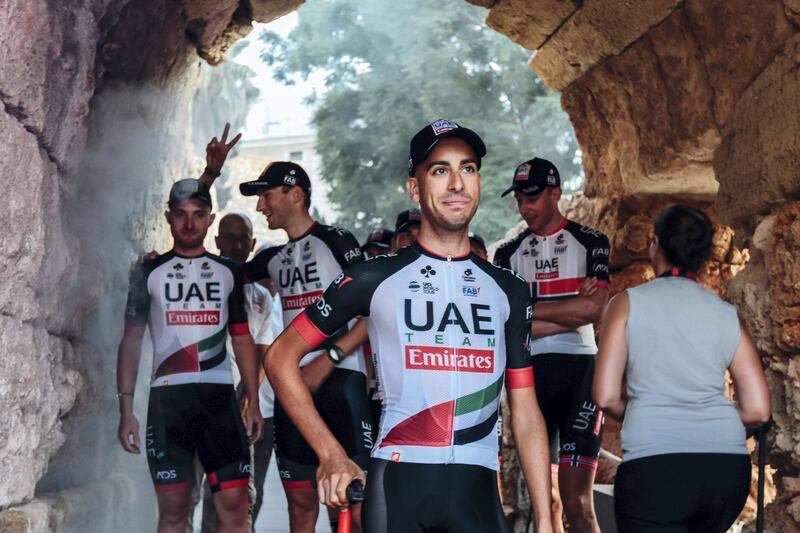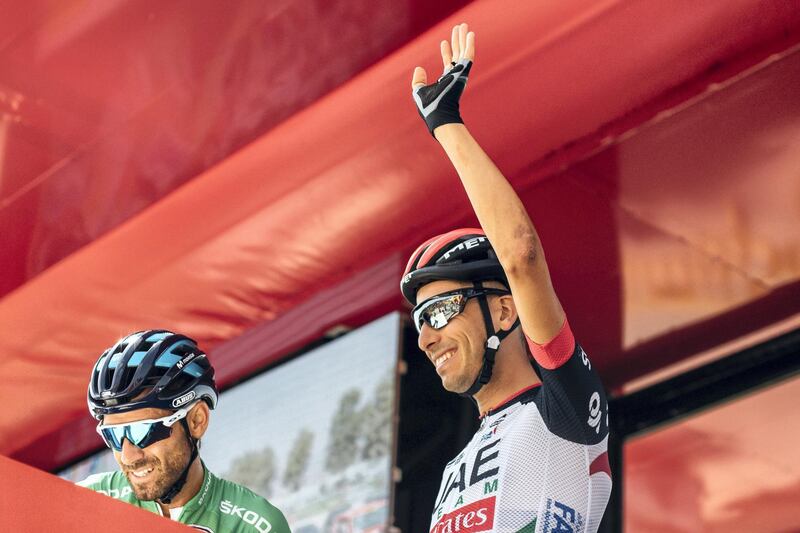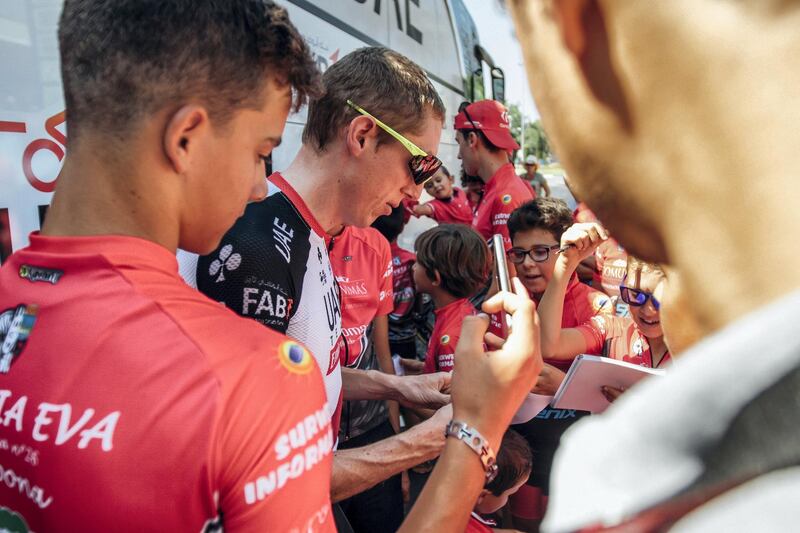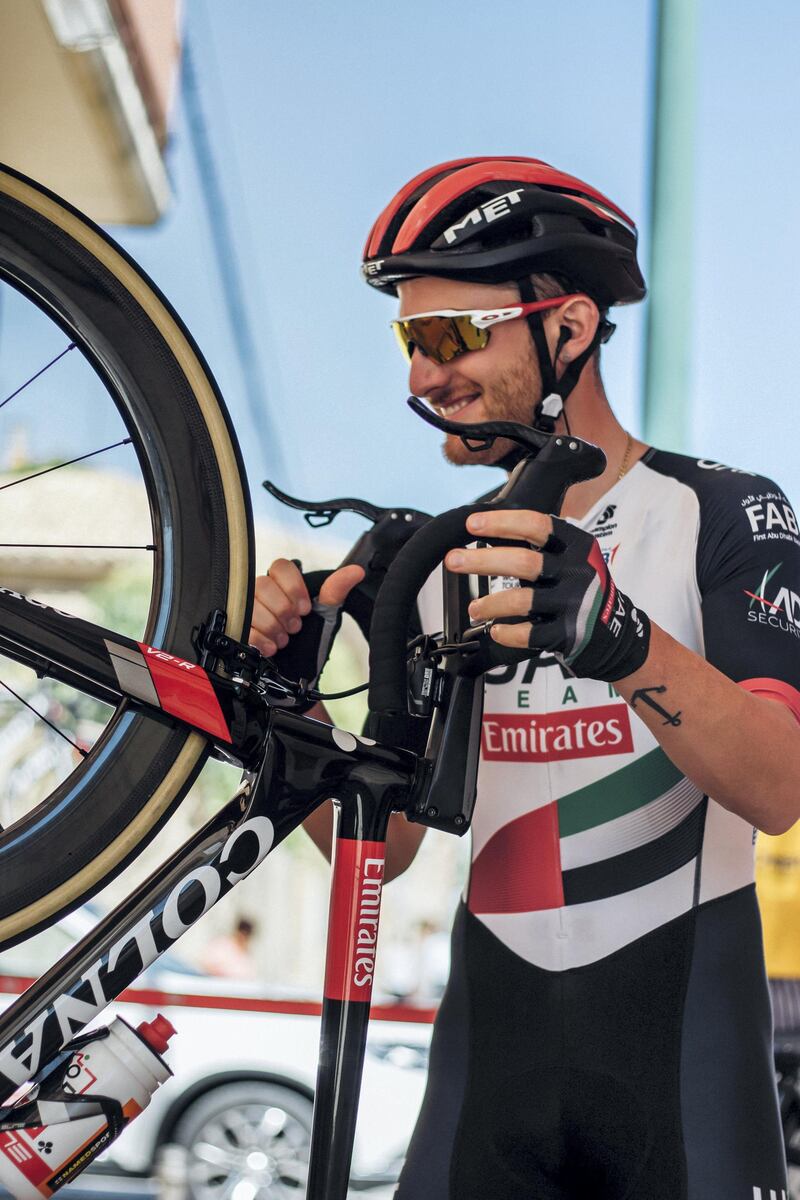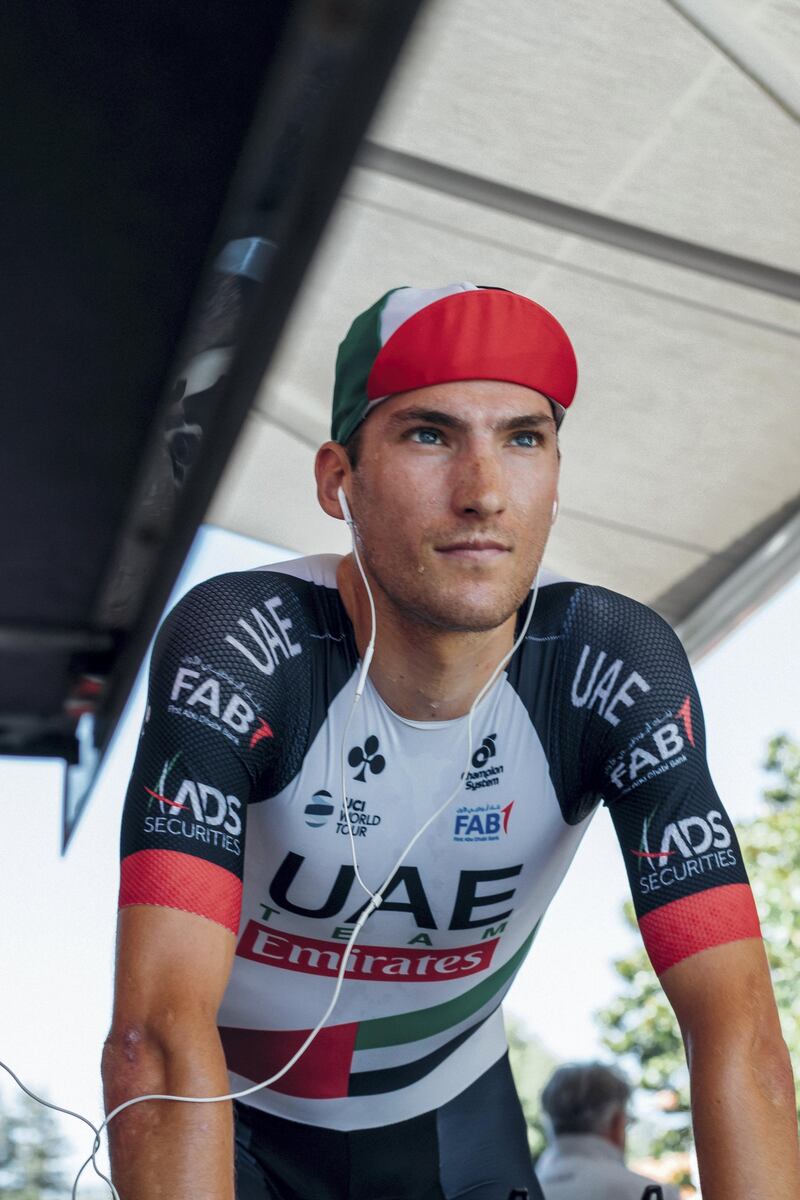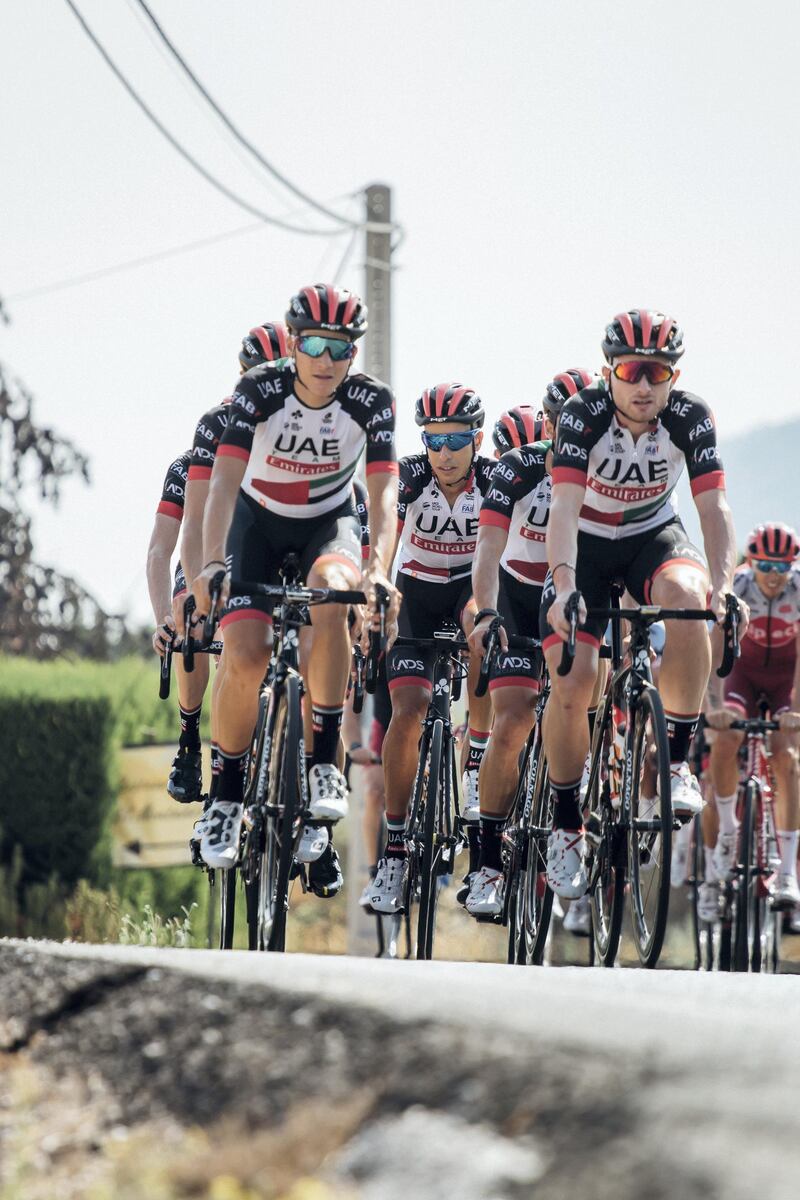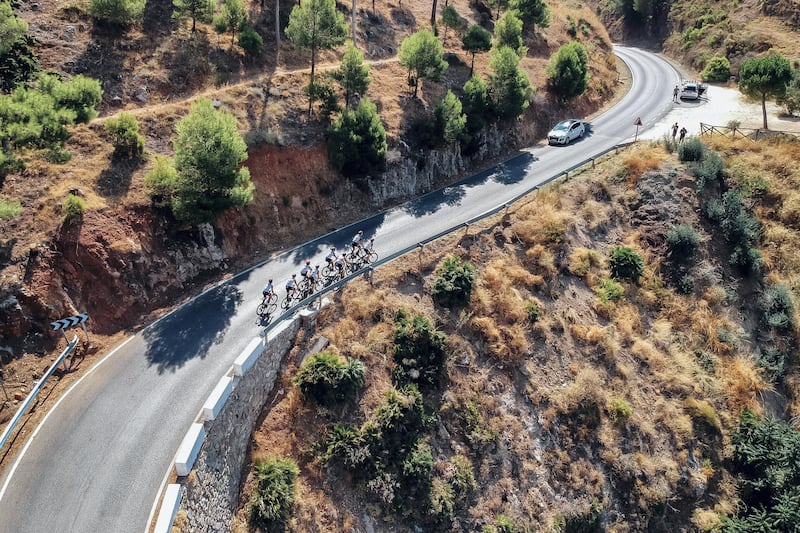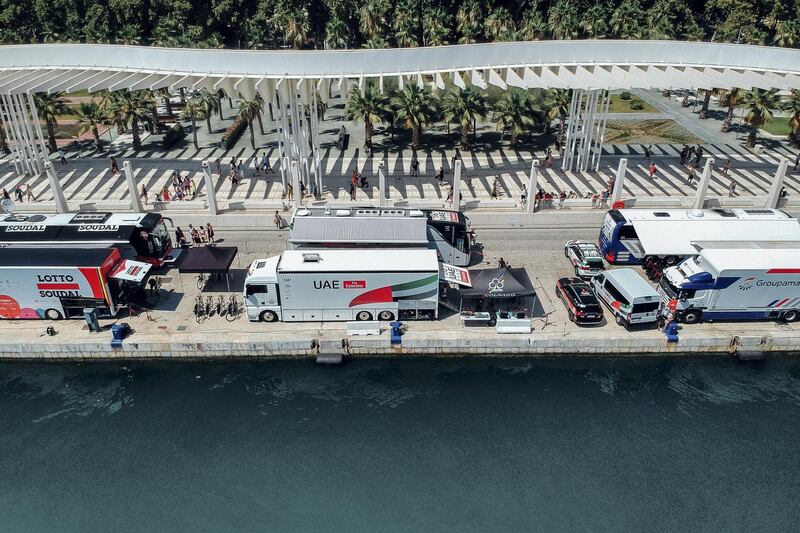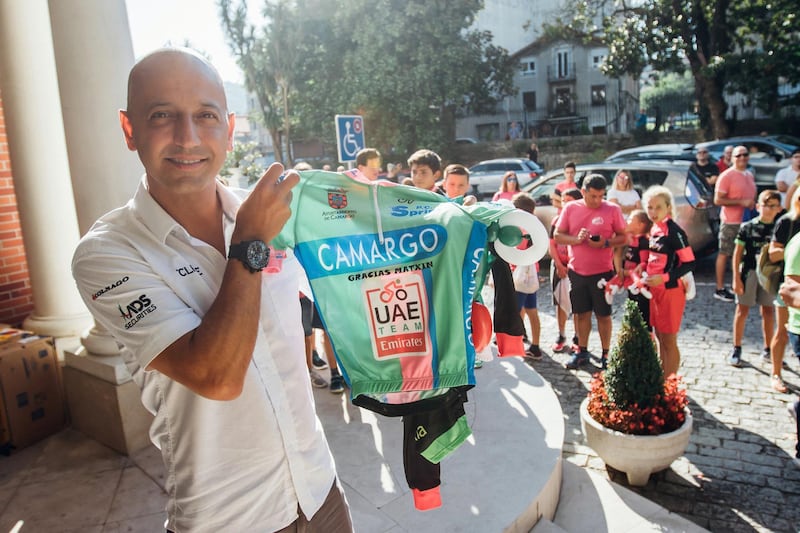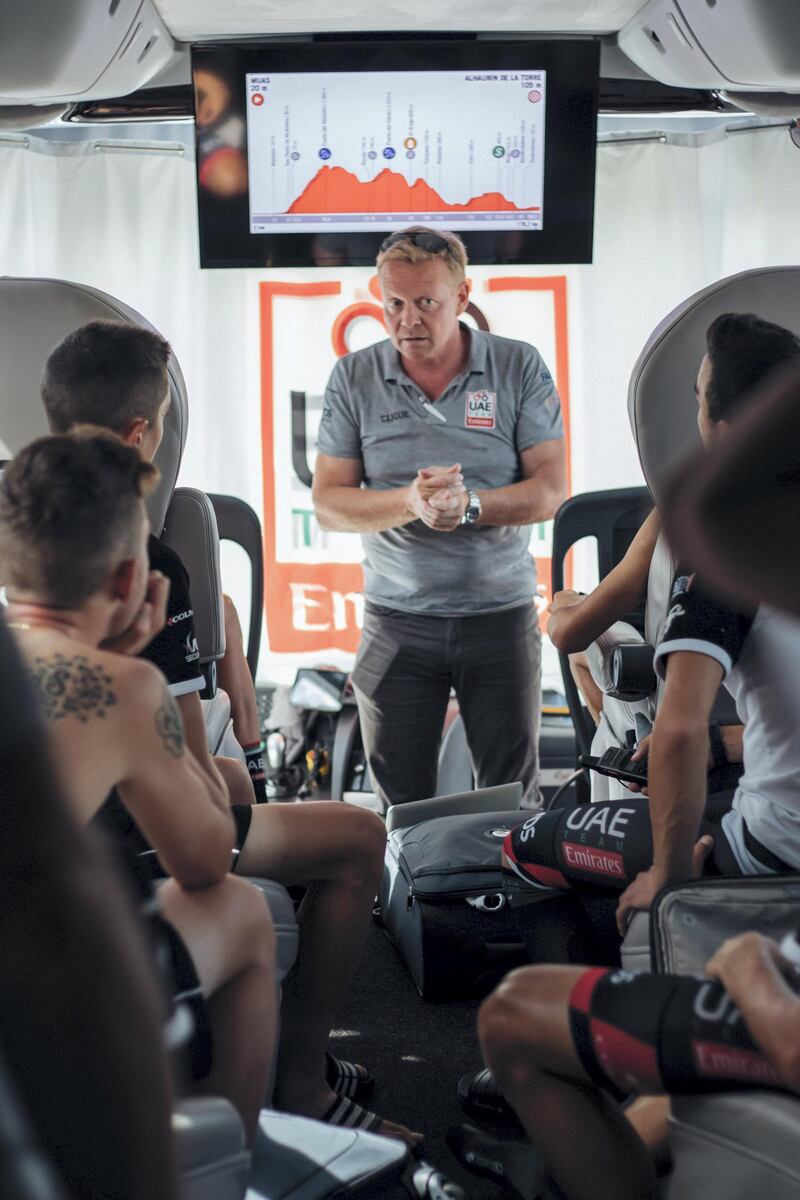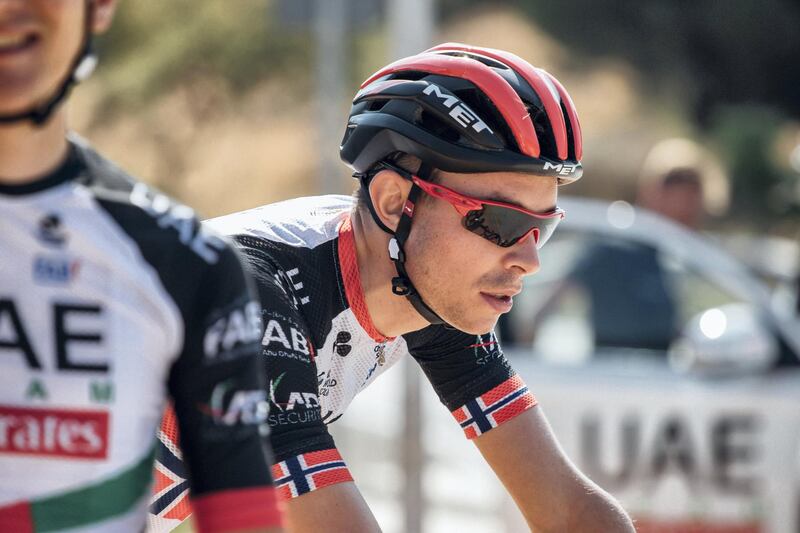“It’s important to stay in the middle, not to let emotions get too high or too low,” says Philippe Mauduit, the UAE Team Emirates sports director, as we gather for dinner at the team hotel in Lleida following Stage 18 of the Vuelta a Espana.
That day was perhaps a case in point. Hours earlier, Sven Bystrom had defied all expectations, holding off a pack of sprinters to claim second place following a Herculean effort in a breakaway the peloton left too late to close down. While the Norwegian rider had "mixed feelings" after narrowly missing out on a precious victory, it was ultimately a fine achievement in what had become - by the team's own admission - a frustrating tour.
However, with another day at the Vuelta completed - including debriefs and data analysis, mechanical tweaks to bikes, massages for the riders, media duties, not to mention the 186.1-kilometre race itself - it was time to unwind and enjoy some food and conversation. After all, it would be all go again in less than 12 hours.
This is the life of a UCI World Tour team in the midst of a grand tour: early mornings, long days, few breaks, constantly on the move. From nutrition, rest and recovery to race preparation, strategy and general logistics – everything is in place to ensure the riders can focus solely on the stage ahead.
It is a well-oiled machine in which each part needs to be properly functioning, such is the mammoth task awaiting the team each and every day.
Unsurprisingly, for a sports director like Mauduit, his day-to-day duties are wide and varied.
“A key part of the role is being in the team car, talking with the riders on the radio,” the Frenchman explains. “On some days we take on very technical and tactical roles, but you have to find the right balance.
“Another main part of the job is organising everything around the riders, to help them perform. Making sure the right people are in the right place at the right time.
“Then we conduct the team meetings - discuss the route, wind, profile, make sure the staff know what we want, where we want it. Being a sports director is a lot about logistics and not only management and coaching.
“Of course, coaching is a big part of it. Every night we go into each room to talk face to face with the riders to debrief: talk over the day and look ahead to the next stage.”
Then there’s the role of motivator, which when a campaign is going well – like the Tour de France earlier this year when UAE Team Emirates had plenty to celebrate – takes care of itself, but can prove more challenging during the latter part of a tour when there’s little left to race for.
“When things are going wrong, it’s easy to get negative. But the job of the sports director is to keep positive and keep the riders motivated,” Mauduit says.
“Sometimes when you get to the finish line, you think ‘what a day’. Then the following day, you kick again and restart, starting in the hotel and then in the bus, we have to provide the motivation.”
It’s little wonder Mauduit is keen to stress the importance of keeping emotions in check.
By the time UAE Team Emirates invite The National out to Spain, the team have been on the road for 20 days competing in the final grand tour of the season. With just three stages remaining before the riders and staff take a well-deserved break, one final push is required.
The next morning, by the time we reach the team hotel, the team’s bus and mechanics have already departed to set up in Lleida town centre, where thousands of cycling fans have converged in anticipation for the start of Stage 19 that will take the riders the 154.4-km route to the finish in Andorra.
I take my place in one of the team cars, alongside sports director Bruno Vicino and mechanic Moreno Bacchion. The car is loaded up with energy drinks, gels and snacks for the riders; spare bikes are secured to the roof; wheels and spare parts lie across the back seats.
Immediately we are called into action - Fabio Aru, the team's lead rider for this race and the 2015 Vuelta champion, requires a wheel change while making the gentle cycle from the hotel to the start line. Bacchion quickly swaps the front wheel on the side of the road before Aru, who two days prior suffered a nasty crash, resumes his ride into the town centre, followed closely by two teenage cyclists keen to ride alongside one of the sport's biggest stars.
As the secondary team car, we are not required at the start of the race so instead make our way out of the Catalonian city and position ourselves approximately 40km along the route on the side of the highway.
After receiving constant updates on the radio from the primary team car, Vicino and Bacchion await the UAE riders with drinks bottles as the peloton goes flying past, the collective sound of whirring bikes resembling a giant swarm of bees.
Drinks deposited into the hands of Aru, Bystrom and the rest of the UAE team, we’re back in the car and join the stream of 50-plus vehicles slowly trailing behind the peloton.
For the next 100-or-so kilometres, while crossing some of the most breathtaking terrain in Europe, we largely maintain our position in the fleet - that is until the riders start their climb through the Andorran mountains and the peloton is broken into smaller groups.
The first UAE rider we come across is Simone Consonni, a supremely talented sprinter but not a cyclist built for the brutal climbs that make up much of the Pyrenees Principality. “Fanta, Fanta”, the Italian requests through the window as Bacchion quickly digs out a can to hand to his compatriot.
After ensuring Consonni is content, our car navigates its way past another group of cyclists, carefully avoiding the throngs of cheering supporters that pack the roadside, many donned in cycling gear, even more waving various national flags.
Our next port of call is Vegard Stake Laengen, the Norwegian champion, who opts for a can of Coca-Cola while hauling his six-foot-four-inch frame through the mountains.
With just a few kilometres to go, the team radio - which up to this point had provided regular updates to the riders regarding time and distance from the front - goes quiet as the chances of challenging for the stage victory diminish.
We take our place in a lay by alongside the UAE team bus - and a host of other team buses and cars - just short of the finish line. Minutes later, cyclists begin to arrive, handing over their bikes to the awaiting mechanics before climbing on to various buses to begin the rest and recovery process.
Approximately 45 minutes later, after all of the UAE team riders have returned, we are back on the road making our way down the mountain and through traffic to the team hotel, where the team’s chef, Michele Romano, gets to work on the riders’ dinner, under the supervision of the team’s doctor, Michele De Grandi.
“When we get to a new hotel, we will go into the hotel kitchen with the team chef and he will prepare the food for the riders,” De Grandi explains.
“During a normal day, the doctor will handle the nutrition of the riders. So we choose, with our chef, the best food for the race and for that particular day.
“We talk with the riders before and after the race to understand their health condition,” he adds. “If everything is fine, we just need to be present and maintain the situation.
“Then there are situations that you can’t control - like a crash or something simple like sleep problems due to stomach ache. Sometimes little problems can create big problems, so our aim is to try prevent these kinds of situations.”
Beyond nutrition and rider welfare, De Grandi is also responsible for one of the most important aspects of professional cycling – anti-doping.
“The doctors for each team know very well which drugs we can use and which ones to avoid,” the Italian says. “It’s not so simple because there aren’t big doping symbols on medicine!
“Sometimes riders will make stupid mistakes because perhaps they are not aware they cannot use certain creams - it can be something that simple.
“This can be one of the most challenging parts of the job. For example, yesterday the start of the race was quite late, but we were at doping control at 8am. For a rider this is not so good - he needs to rest and recover, particularly now in the third week of a grand tour when riders are more tired.
“One of our riders had a fever in the night, so he needs more rest if possible, but there was a doping control so we need to be present.”
Meals for the riders prepped and consumed, it's finally time for the 20-strong team of staff to recharge and reflect on another non-stop 14-hour day.
Despite this daily routine for three weeks, and with the team out of contention, the mood remains light and jovial. Perhaps it's because the finish line is in sight and a return to home comforts beckon. But equally, there is an unmistakable bond - built on a shared passion for cycling and pride in one's work - that ensures the men that graft tirelessly behind the scenes for UAE Team Emirates remain committed to the cause.
